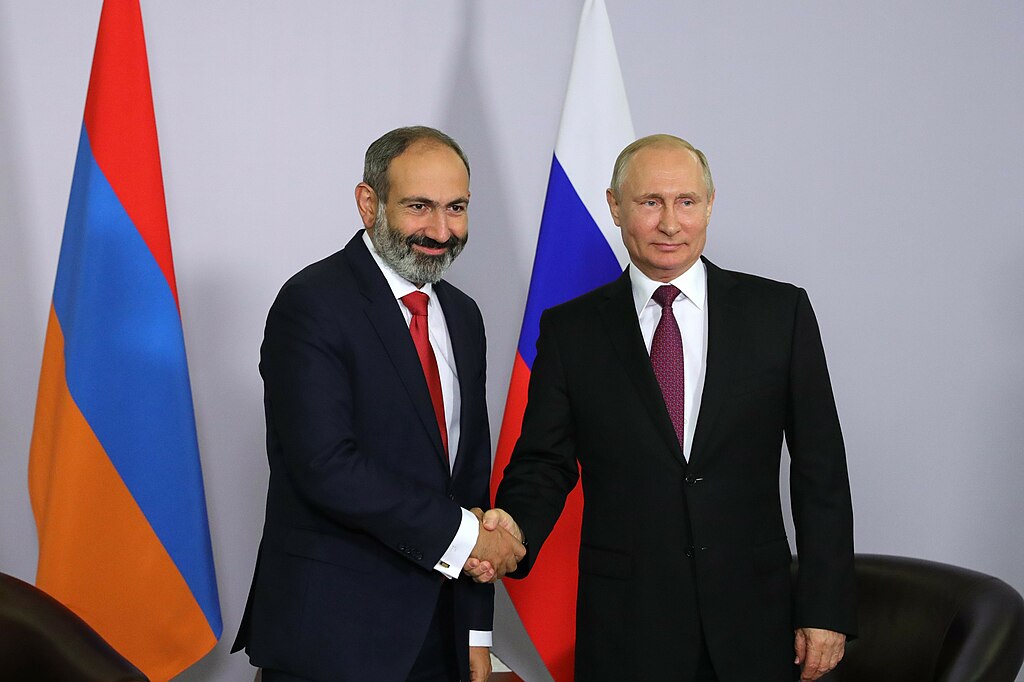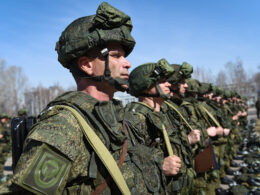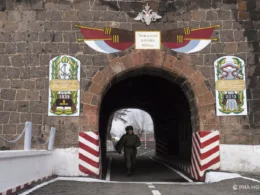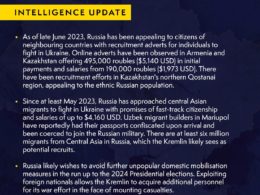Armenian Prime Minister Nikol Pashinyan has confirmed that Armenia has frozen its participation in Russia's Collective Security Treaty Organization (CSTO) at all levels. The announcement came during a press conference on 31 August, as reported by Armenian news agency News.am, Suspilne says.
The CSTO, Russia's analog to NATO, is an intergovernmental military alliance in Eurasia, formed in 2002, comprising six post-Soviet states: Russia, Armenia, Belarus, Kazakhstan, Kyrgyzstan, and Tajikistan.
On 31 August, responding to a journalist's question about what else needs to happen for Armenia to leave the CSTO, Pashinyan stated,
"The Republic of Armenia has frozen its participation in the CSTO at all levels, and at this stage, we consider this decision sufficient."
The Prime Minister acknowledged that there might be differing opinions on the adequacy of this move but emphasized that the decision has been made.
"For now, we don't see the need to make another decision, which doesn't mean we won't see the need to decide otherwise in the future," Pashinyan added.
Armenia's relations with Russia have worsened over the past year. In February 2024, Prime Minister Nikol Pashinyan announced that Armenia had "frozen" its participation in the CSTO. By early August, Armenia also refused to join CSTO exercises set for September 2024 in Kyrgyzstan. On 12 June, Pashinyan hinted at a possible withdrawal from the organization. Foreign Minister Ararat Mirzoyan later clarified that Pashinyan did not formally announce an exit but remarked, "We will decide when to leave, but we will not return."
In 2023, Armenian Prime Minister Nikol Pashinyan admitted it was a strategic mistake for Armenia to rely solely on Russia for its security, stating:
"Moscow has been unable to deliver and is in the process of winding down its role in the wider South Caucasus region" and "the Russian Federation cannot meet Armenia's security needs. This example should demonstrate to us that dependence on just one partner in security matters is a strategic mistake."
- From 2014 to 2021, during the Russo-Ukrainian war, Russia's ally Armenia consistently supported Russia by voting against Ukraine at the United Nations, including opposing United Nations General Assembly (UNGA) Resolution on Ukraine's territorial integrity.
- Meanwhile, Ukraine consistently backed Azerbaijan's territorial integrity in the Nagorno-Karabakh conflict and voted in favor of UNGA Resolution, which demanded the "immediate, complete and unconditional withdrawal of all Armenian forces from all the occupied territories of Azerbaijan."
- After Russia's 2022 full-scale invasion of Ukraine, Armenia ended its support for Russia's positions at the United Nations and called for dialog to end the war.
Related:
- Kuleba meets with Armenian Foreign Minister, who distances himself from Russia
- Armenia deepening relations with US, EU, considers joining EU, FM says
- Armenia, Azerbaijan breakthrough signals end of Russia’s South Caucasus influence
- Armenia participates in Ukraine peace formula summit for the first time
- Armenia ratifies ICC Rome Statute, opening path to arrest Putin
- Microchip backalley: Armenia, Kazakhstan help Russia evade sanctions, produce weapons
- Not yet occupation, but already intervention. Consequences of Russian troops entering Kazakhstan





